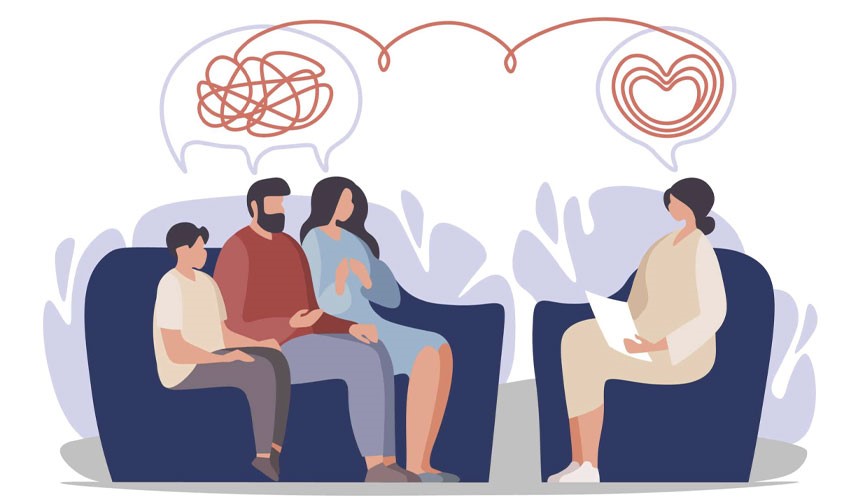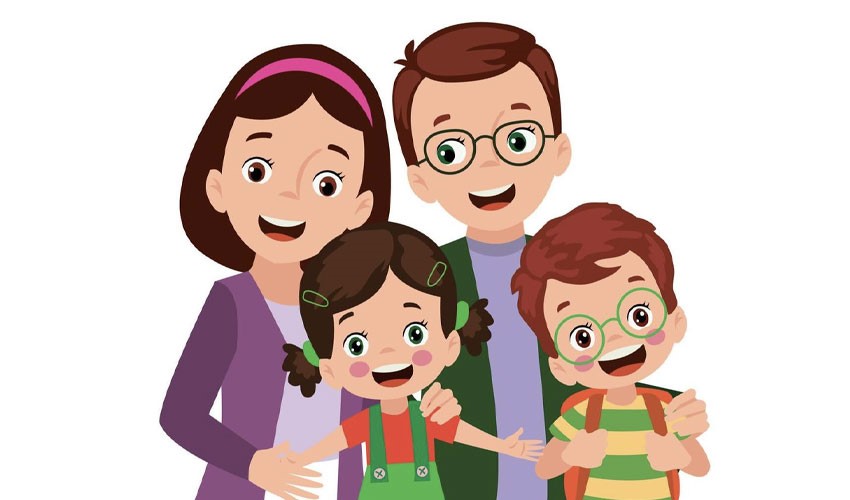FEATURE SNIPPETS
Key Aspects:
- Holistic Approach: Considers dynamics among all family members.
- Communication Enhancement: Develops better understanding.
- Conflict Resolution: Provides a safe space to solve conflicts.
- Building Resilience: Equips families to navigate tough times.
Role of Family Services Counseling:
- Assessment and Referral: Identifies needs and directs families to help.
- Psychoeducation: Empowers with therapy benefits and coping strategies.
- Advocacy and Support: Helps access resources and navigate systems.
In the intricate tapestry of human existence, family emerges as the sturdy cornerstone, intricately weaving together the threads of our lives, imbuing our days with moments of boundless joy, unwavering support, and transformative growth. Like the most delicate of fabrics, familial relationships are susceptible to the strains and stresses of life, vulnerable to the wear and tear that inevitably accompany life’s trials and tribulations.
In the face of adversity, when the once seamless connections between loved ones begin to fray, tangle, or even tear apart, it is within these moments of vulnerability that the beacon of hope brightly shines, often in the form of family therapy.
What Actually is Family Therapy and How it Works Let’s Know More About it
Family therapy, also known as family counseling, is a therapeutic approach that focuses on improving communication and resolving conflicts within family units. It acknowledges that individual issues are often interconnected with family dynamics, and thus, addresses problems within the context of the family system. This approach views the family as a complex organism, where each member plays a vital role in its functioning.
This blog will help you learn more about the benefits of family therapy – What is Family Therapy | Family Therapy Techniques

The Various Aspects of Family Therapy and How It Works
At the heart of family therapy lies the belief that families possess inherent strengths and resources to overcome challenges when provided with the right support and guidance.
Holistic Approach: Unlike individual therapy, which primarily focuses on the experiences and emotions of one person, family therapy considers the dynamics and interactions among all family members. It examines how each individual’s thoughts, feelings, and behaviors influence the family system as a whole.
Communication Enhancement: Effective communication is essential for healthy relationships. Family therapy helps family members develop better communication skills, such as active listening, expressing emotions constructively, and resolving conflicts peacefully. By improving communication patterns, families can strengthen their connections and foster mutual understanding.
Conflict Resolution: Conflicts are inevitable in any relationship, but how they are managed can make a significant difference. Family therapy provides a safe and supportive environment for addressing conflicts and finding constructive solutions. It encourages family members to explore underlying issues, identify common goals, and work together towards reconciliation.
Building Resilience: Families encounter various stressors, such as transitions, loss, or trauma, which can strain their cohesion. Family therapy equips families with resilience-building strategies to navigate through tough times. By fostering adaptability, problem-solving skills, and emotional support, families can emerge stronger from adversity.

How Family Services Counseling Help Families
Family services counseling plays a pivotal role in facilitating access to family therapy and supporting families in need. These services encompass a range of interventions aimed at promoting the well-being of individuals and families.
Assessment and Referral: Family services counselors conduct thorough assessments to understand the unique needs and challenges faced by families. Based on their evaluation, they may refer families to appropriate therapeutic interventions, including family therapy, individual counseling, or support groups.
You can also use our LetsGetHappi app to use free assessment tests to assess your mental health and related problems and also to keep track of your progress.
Psychoeducation: Family services counselors provide valuable psychoeducation to families, educating them about the benefits of therapy, the nature of mental health issues, and effective coping strategies. By empowering families with knowledge and information, counselors empower them to make informed decisions about their well-being.
Advocacy and Support: Families navigating complex systems, such as healthcare, education, or social services, may encounter barriers or challenges. Family services counselors serve as advocates, helping families access resources, navigate bureaucratic processes, and assert their rights. Additionally, they offer emotional support and guidance throughout the therapeutic journey.
To book a family therapy session you can visit our page and book a session Discover Transformative Family Therapy at Veda Wellness World and take its full benefits.
Family therapy holds immense promise in nurturing healthy, resilient, and fulfilling familial relationships. By embracing its holistic approach, families can embark on a transformative journey towards deeper understanding, communication, and connection. With the invaluable support of family services counseling, families can access the resources and guidance needed to embark on this journey of healing and growth. Let us recognize the profound impact of family therapy in fostering stronger, more vibrant families—a cornerstone of thriving communities.
FREQUENTLY ASKED QUESTIONS
Q1. What Happens in a Family Therapy Session?
In a family therapy session, the therapist guides discussions and activities to improve family dynamics and address specific concerns. Family members express thoughts and feelings in a safe environment. Techniques like role-playing and genograms are used to explore relationships and develop healthier interactions.
Q2. How Long Does Family Therapy Last, and How Often Are Sessions Scheduled?
The duration varies based on issues and progress. Short-term therapy may span a few sessions, while long-term therapy can last months or years. Sessions, usually weekly or bi-weekly, are scheduled based on family needs and availability, with goals and frequency determined collaboratively with the therapist
Q3. What Can Families Expect Regarding Confidentiality in Family Therapy?
Confidentiality is a priority in family therapy, with therapists following strict ethical guidelines. While discussions are kept confidential, exceptions exist in cases of potential harm to oneself or others. Therapists discuss confidentiality policies upfront to clarify expectations.
Q4. How Does Family Therapy Differ from Individual Therapy?
Family therapy addresses family dynamics, while individual therapy focuses on personal experiences. Family therapy suits issues involving multiple family members or stemming from family dynamics, whereas individual therapy may be recommended for personal concerns or when family members can’t participate.

